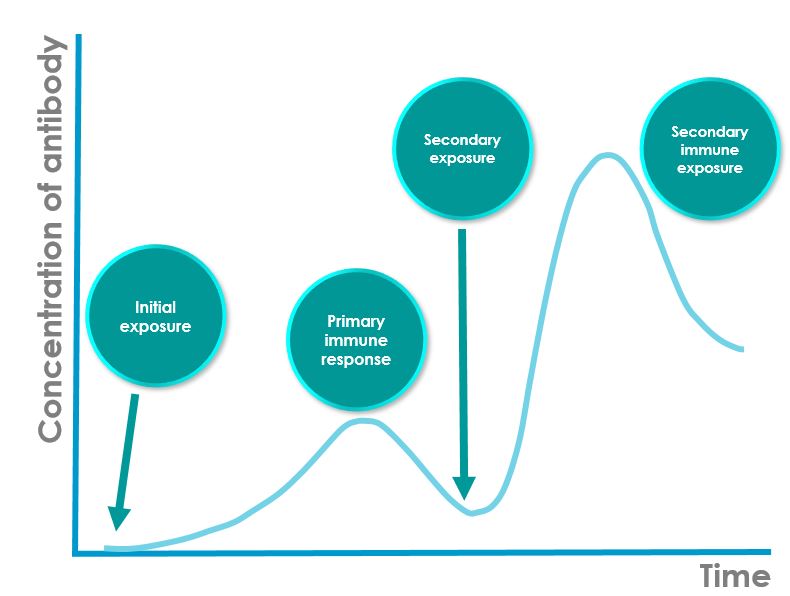
- When a vaccine is administered (initial exposure) there is a delay before antibodies areproduced. This is because of the lag time for immune cells, with the receptor specific to this foreign antigen, to come in to contact with it, and trigger the immune response.
- Once this has happened the primary immune response is triggered to fight the foreign antigen and antibody levels increase until the “intruder” has been eliminated.
- From the initial exposure and primary immune response the body has created a “memory” against the antigen so that if the body is exposed to the antigen again it will be able to launch a more rapid immune response with many more antibodies than it did in the primary immune response.
- The benefits of vaccines are that a patient can be exposed to an antigen or a weakened pathogen and not suffer from the illness or symptoms, whilst building an immunity against the pathogen and a "memory" so that the body can launch a more powerful response if an individual is ever infected by that particular pathogen.
